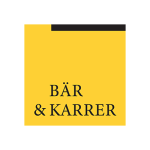On January 1 2017, the Swiss domestic legislation on the Automatic Exchange of Information (AEOI) entered into force and the Swiss Federal Tax Administration (SFTA) published guidelines specifying the crucial aspects of the legislation for practical use. Under the AEOI, Swiss financial institutions (FI) will collect and exchange relevant financial information on 'reported persons' with Switzerland's partner states. By the same token, Switzerland will receive data collected on Swiss resident reported persons from Switzerland's partner states. The exchanged information will be used for domestic taxation purposes in the state of residence of the reported persons.
Since the enactment of the AEOI in January 2017, Switzerland has gained its first important experiences in the application of the AEOI legislation, reflecting the AEOI's multi-layered effects on FIs, reported persons (individuals) and service providers such as, for example, trustees.
Status as a financial institution
Due to the entry into force of the AEOI legislation in Switzerland, Swiss FIs have to register with the Swiss Federal Tax Administration (SFTA) by the end of 2017. The definition of an FI includes not only depositary and custodian institutions, but also specified insurance providers and investment entities. Investment entities include entities that predominantly provide commercially for their customer services in the fields of trading in money market instruments, foreign exchange, interest or indices instruments, tradable shares or commodities, or provide individual or collective asset management or any other form of holding or management of financial assets of third parties.
Swiss entities may claim a declaratory decision from the SFTA regarding their qualification as an FI for AEOI purposes. It is recommended that every Swiss entity which is uncertain as to its AEOI status obtains confirmation on its status as soon as possible. Once an entity is certain of its status as an FI, it is recommended to set up the appropriate internal processes to perform the compliance components that AEOI entails.
Update regarding Switzerland's partner states
To date, Switzerland has 78 partner states (including all 28 EU member states). For 37 of them (EU member states and important financial hubs such as, Australia, Canada and Japan as well as Jersey, Guernsey and the Isle of Man), Switzerland has started to collect data in 2017 and will start exchanging data in 2018. For the remaining 41 states (including, for example, important South American hubs, South Africa, Israel and also the BVI, Cayman Islands and Monaco), provided that the parliamentary discussions are successful, the data collection is scheduled to start in 2018 with exchange of data beginning in 2019.
Due to the implementation of the Foreign Account Tax Compliance Act legislation in the US, Switzerland and the US have not agreed on the AEOI. Additionally, the US is not considered as a participating state for the purposes of the AEOI, meaning that structures with US nexus are not covered.
As far as Switzerland's neighbouring country, Liechtenstein, is concerned, it is now listed among the countries with which the AEOI should enter into force on January 1 2018. With this step Switzerland made clear that it is not interested in entering into a tailor-made agreement, but wants to quickly implement the global AEOI standard also with Liechtenstein. Therefore, the implementation of the AEOI with Liechtenstein seems to be only a matter of time – a first exchange of data in 2019 is likely.
Persons affected by the AEOI and its impact on voluntary disclosure in Switzerland
Formally, 'reported persons' include persons resident in a partner state or a participating state, except for listed companies, governmental legal entities, international organisations, central banks and financial institutions. One of the AEOI-affected groups of people are individuals or legal entities that are domiciled in one of Switzerland's partner states and have undeclared, movable property in Switzerland. Persons with tax residency in Switzerland and cross-border investments in one of Switzerland's partner states (for example, a bank account with a German bank) will also face legal consequences due to the introduction of the AEOI, as data with regard to such investments will be collected as of January 1 2017 and will automatically be transmitted to the SFTA as of 2018.
With the implementation of the AEOI in Switzerland, transparancy will generally be achieved on all levels. To best encounter the consequences of the AEOI, a voluntary disclosure covering undeclared assets should be filed with the competent tax authorities. The timing of voluntary disclosure submissions is crucial, in particular with a view to receiving an exemption from punishment, which will only be granted in cases where the tax authority has no knowledge of the undeclared assets. The tax administrations' practices as regards when undeclared assets are considered as 'known' differ widely from canton to canton. In order not to jeopardise exemption from penal punishment, taxpayers should submit the voluntary disclosure with the competent tax authority as soon as possible.
The specialists at Bär & Karrer remain at the entire disposal of financial institutions, potential reported persons and service providers in the assessment of their obligations under the AEOI legislation and the implementation of the necessary steps.

|
Ruth Bloch-Riemer |

